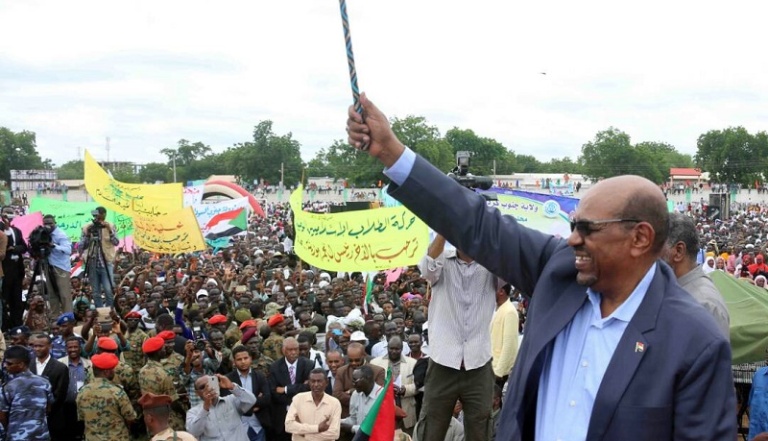Sudan’s al-Bashir renews call for opposition to join national dialogue

July 27, 2018 (KHARTOUM) – The Sudanese President Omer al-Bashir has called on the holdout groups to join the national dialogue in order to achieve reconciliation and comprehensive peace.
Al-Bashir on Thursday met with Presidential Aide Abdel-Rahman Sadiq al-Mahdi at the Presidential Palace in Khartoum.
It also intervenes as Sadiq al-Mahdi the leader of the National Umma Party and the opposition Sudan Call alliance faces strong criticism from the armed groups and displaced groups in Darfur for calling for an international settlement of al-Bashir’s case at the International Criminal Court.
According to a laconic statement released after the meeting, al-Bashir and the son of the opposition leader discussed a number of issues including Sudan’s regional role as well as “the governance reform programme”.
In January 2014, al-Bashir called on political parties and armed groups to engage in a national dialogue to discuss four issues, including ending the civil war, allowing political freedoms, fighting against poverty and revitalizing national identity.
In October 2016, political forces participating in the dialogue concluded the process by signing the National Document which includes the general features of a future constitution to be finalised by transitional institutions.
A National Consensus Government was installed in May 2017 to implement the outcome of the dialogue conference.
AL-MAHDI CALLS FOR PEACEFUL TRANSITION
In a speech delivered at the Royal United Services Institute for Defence and Security Studies in London on Friday, Sadiq al-Mahdi called for the departure of the regime of President Omer al-Bashir saying the reasons have become visible. He further pointed to the economic crisis, the failure of the national dialogue process and the erosion of the popularity of the government.
Al-Mahdi said the international community can convene an international conference to consolidate the peace process and the democratic transition in the country. “We are not asking them to change the regime. This is the task of the national political movement,” he stressed.
The opposition groups boycotted the national dialogue because the government didn’t agree to a humanitarian truce with the armed groups and due to its refusal to implement a number of confidence-building measures aiming to create a conducive environment in the country before to hold an inclusive dialogue.
(ST)
